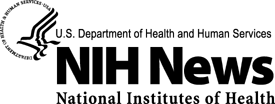 |
|
|
FOR IMMEDIATE RELEASE:
October 11, 2000 #00-12 NIEHS CONTACT:
Bill Grigg (301) 402-3378 11 Oct 2000: Public and Scientific Comment Sought on Expert Panel Reports on the Possible Human Reproductive Effects of Seven PhthalatesThe National Institute of Environmental Health Sciences (http://www.niehs.nih.gov) and the National Toxicology Program (http://ntp.niehs.nih.gov/), which is headquartered at NIEHS, today made available expert panel reports on the possible reproductive hazards of seven plasticizers and asked for public and scientific comment on them. The comments will be reviewed and used in preparing a final report from the NIEHS/NTP Center for the Evaluation of Risks on Human Reproduction (http://cerhr.niehs.nih.gov/index.html). During three meetings over 15 months, the expert panel reviewed published information from studies of humans and animals exposed to the chemicals, which are used to give PVC plastics such characteristics as flexibility and strength, over 15 months. The expert panel generally expressed "minimal " or "negligible" concern for the possibility that these substances may cause adverse reproductive effects under current levels of human exposure. However, the panel expressed "serious concern" about di (2-ethylhexyl) phthalate (DEHP) as used to make polyvinyl chloride (PVC) medical tubing and other medical devices for feeding and medicating critically ill newborn infants and for assisting their breathing. The panel said such procedures might result in exposures to DEHP that are much higher than for the general population and could affect development of the male reproductive system. Panel members said at the end of the sessions in July that they hoped their concern might lead to DEHP-free medical devices for use in infants. At the same time, they acknowledged the life-saving potential of medical devices containing DEHP to support preemies and other ill newborns through life-and-death situations. The panel included 16 scientists from in and out of government experts representing such disciplines as toxicology, epidemiology and medicine. Besides DEHP, the panel evaluated data on di-isononyl phthalate (DINP), di-isodecyl phthalate (DIDP), butyl benzyl phthalate, di-n-butyl phthalate, di-n-hexyl phthalate, and di-n-octyl phthalate. The panel's reports can be obtained at the NTP website cerhr.niehs.nih.gov or by writing or telephoning Ms. Harriet McCollum, CERHR coordinator, 1800 Diagonal Road Suite 500, Alexandria, VA 22314-2808, (703) 838-9440. Comments should be submitted within 60 days to Michael D. Shelby, Ph.D., CERHR director, B3-09, the NIEHS/NTP, Box 12233, Research Triangle Park, NC 27709. Further details appear in the Federal Register notice (http://cerhr.niehs.nih.gov/news/fedreg/fr10_10_00.html) of October 10, Volume 65, Number 196, page 60206. |
|


